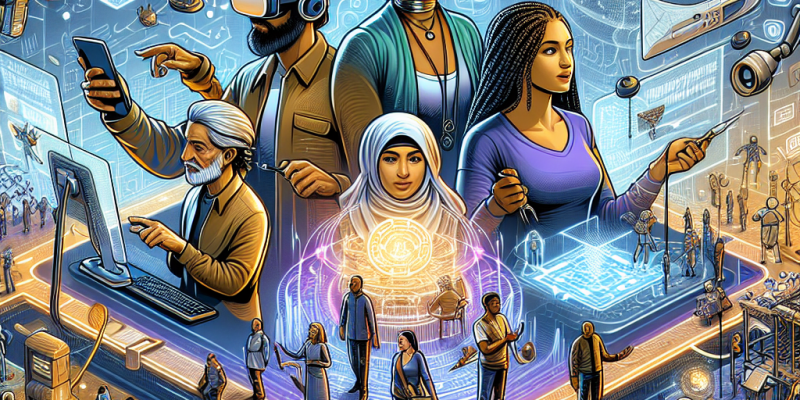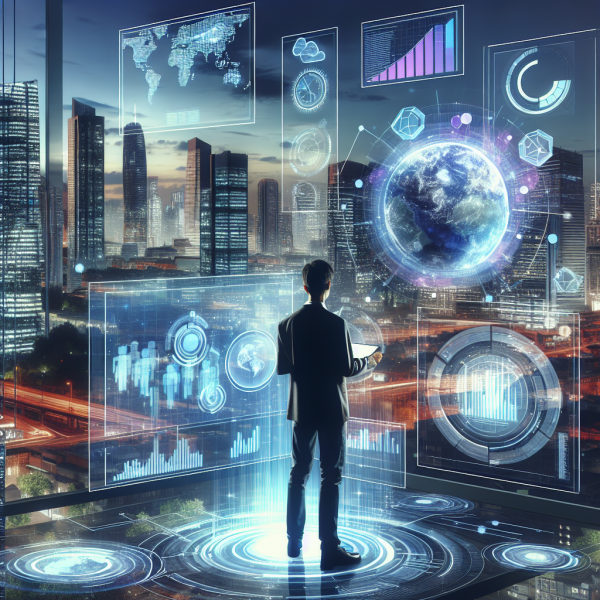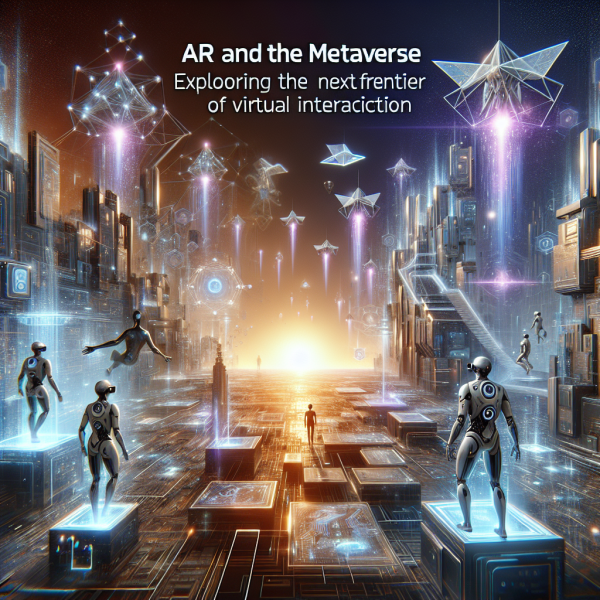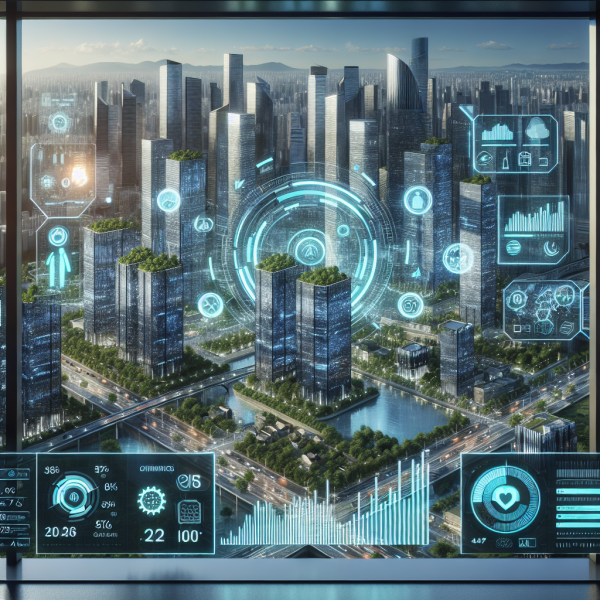Navigating the Metaverse: Emerging Technologies that Will Define Digital Life in 2024

As we step into 2024, the concept of the metaverse is no longer confined to the realms of sci-fi fiction but has burgeoned into a multifaceted digital ecosystem. It combines realities, transcending physical and virtual environments to create immersive experiences that change how we socialize, work, play, and even learn. This year promises to be pivotal for the metaverse, thanks to several emerging technologies that will shape our digital lives.
1. Enhanced Virtual and Augmented Reality
One of the foundational elements of the metaverse is the seamless integration of Virtual Reality (VR) and Augmented Reality (AR). In 2024, we can expect significant advancements in these technologies. Companies are innovating VR headsets that boast improved resolution, wider fields of view, and reduced motion sickness—making immersive experiences more accessible than ever.
Simultaneously, AR technology is evolving with smart glasses that overlay digital information on the physical world. From navigation prompts blending effortlessly into real-time views to interactive instruction manuals, the merging of AR into daily life will redefine utility and entertainment.
2. AI-Powered Virtual Assistants
Artificial Intelligence (AI) is set to play a monumental role in the metaverse, giving rise to virtual assistants who can guide users through their experiences. These AI entities will not only answer questions but will also personalize your metaverse interactions based on preferences, behavior, and social context. Imagine an AI friend in the metaverse who curates experiences for you, or wherever you go, it remembers your likes and dislikes, schedule, and even your goals.
Conversational AI will also take center stage, allowing users to interact with virtual environments using natural language. This democratization of technology will make the metaverse more accessible to those less familiar with traditional digital interfaces.
3. Blockchain and Decentralization
As the metaverse expands, the importance of digital ownership becomes paramount. Blockchain technology, with its ability to establish verified ownership and provenance, will be vital in facilitating transactions within the metaverse. Non-fungible tokens (NFTs) are likely to become integral to user interactions; they will not only represent digital art but also virtual real estate, avatars, and unique experiences.
Furthermore, the rise of decentralized platforms will promote a user-owned and controlled metaverse. The shift toward community governance, alongside creating sustainable economies, will empower users rather than large corporations, enabling a more equitable digital space.
4. 5G and Edge Computing
As reliance on high-speed connections intensifies, the rollout of 5G technology will significantly enhance the metaverse experience. With ultra-low latency and high capacity, 5G will enable seamless interactions in VR and AR environments, allowing for real-time collaboration and communication. Gamers, remote workers, and educators will benefit greatly from environments that respond instantaneously to user inputs.
Alongside this, edge computing will play a crucial role, bringing processing power closer to the end-user. This proximity enhances performance and reduces latency, making collaborative experiences, including virtual meetings and multiplayer games, more fluid and responsive.
5. Interoperability and Cross-Platform Experiences
For the metaverse to thrive, platforms must communicate seamlessly, allowing users to traverse different virtual realms without friction. In 2024, we will see significant efforts to standardize protocols that promote interoperability among various metaverse platforms. This means your digital avatar and assets might be used across different worlds—from shopping and concert experiences to educational settings—thus creating a cohesive metaverse experience.
6. Social Interaction and Community Spaces
Social experiences define the metaverse. In 2024, we can anticipate more innovative approaches to community gathering, be it through virtual concerts, social hubs, or collaborative creative spaces. Expect platforms to leverage technology to facilitate organic interactions that mimic real-world behavior—where users can experience events as if they were physically present, breaking down geographic barriers.
7. Ethical Considerations and Digital Well-being
As the metaverse evolves, so do the ethical concerns surrounding already-established and emerging technologies. Discussions about digital privacy, data ownership, and mental health implications will intensify. Tech companies will likely face increased scrutiny regarding how they handle user information and the impact of immersive experiences on mental health.
In response, there will likely be a focus on promoting digital well-being. Developers may prioritize user-friendly designs that encourage breaks and healthy social interactions, leading to a well-rounded digital experience that acknowledges the importance of maintaining a balance between virtual and physical lives.
Conclusion
The metaverse is on the cusp of a transformative era, driven by emerging technologies set to redefine digital life in 2024. As virtual environments become more immersive and accessible, they will shape how we interact with the world and each other. However, how we navigate this complex digital landscape will rely heavily on the ethical considerations we establish today. The metaverse invites a revolution in digital life, but it is up to us to ensure it is inclusive, secure, and enriching. As we leap into this new frontier, the journey promises to be as exciting as it is groundbreaking.













